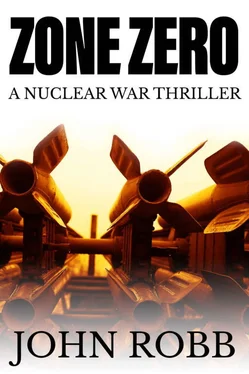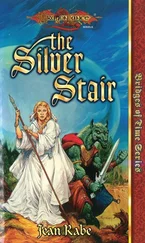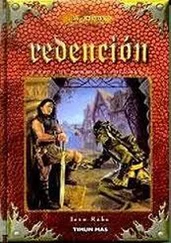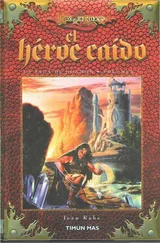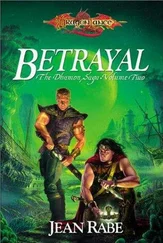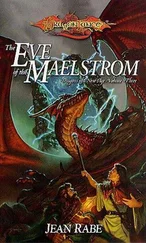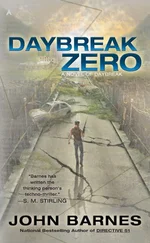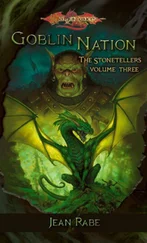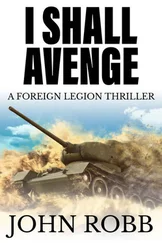Then Daak was with them.
He turned the corner, rested a shoulder against the wall. His pince-nez was no longer on his nose and he blinked short-sightedly.
Keith edged round so that the Lebel rifle was aimed at his ribs rather than his back. The guard did not appear to notice the movement. He was half occupied in taking darting glances at Daak. So was Gallast. And D’Aran.
For Daak was quivering on the edge of hysteria.
His pink face was convulsed like the heaving of a turgid sea. Tears were forming in his round eyes. He began to whimper. And to utter disconnected, meaningless words.
The grenade explosion had been the last straw so far as the professor was concerned.
Gallast made an effort to control his annoyance. He said to him: “Go back to your bunk. Rest for a while. You have nothing to worry about. We have horses now and water.”
But Daak did not appear to hear. He rubbed moist, dim eyes with the back of his hand. He fought to control himself—and with some effect, for his words suddenly began to make sense.
“I can’t go on,” he slobbered. “I can’t! I’m sick and weary. My heart… it is weary, too…” He broke off, then said to Gallast: “You have horses and water? How is that?”
“They are outside the walls,” Gallast said. “They belong to our Arab visitors. Now do as I advise and get…”
Daak interrupted wildly. His high-pitched voice rose to a piercing falsetto.
“Then let us get away from here! If we start now we may get out of the danger zone in time… we must do it… we must… I can’t stay in this place any longer!”
“Professor Daak,” Gallast said with greater emphasis, “return to your bunk immediately. I will speak to you later.”
Despite his condition, Daak recognised the insult in the words. And he reacted to it.
Bunching his fleshy little fists he shrieked: “Don’t dare talk to me so! I will not be addressed in such a manner by a—a piffling colonel. You forget that this is an operation for a scientific purpose. I cannot achieve that purpose. I’m too ill. We must return immediately by the same way that you came. On horseback! I insist!”
It was a critical moment for Gallast.
In military parlance, he had achieved an unconsolidated manoeuvre. Horses and water were to hand, but not yet under direct control. The Arabs were cowering on the ramparts, but a mere four rifles kept them so. The legionnaires were obeying orders by staying in their bunk room, but they had not yet been eliminated. The lieutenant and the English legionnaire were at his elbow and ripe for killing, but they were still very much alive.
And now, into the cockpit of the crisis, a semi-hysterical and utterly demoralised Daak had blundered.
It was obvious that if Daak were to witness any further violence he would lose his reason. And that would be a tragedy for the State both now and in the future. His knowledge, his ability, were priceless. So Gallast saw very clearly that he could not kill D’Aran and Keith while the quivering professor watched. But firm measures would have to be used to induce him to get back to the room.
Gallast was still watching D’Aran as he said to Daak: “We cannot return by the way we came, professor. In your condition you would not survive the journey. It would take us two weeks to reach our agents on the coast. No—we will take the much shorter trip to the safety of the foothills. There you can rest for a few days. And, when it is safe to do so, we will return here and you will compile the data from your instruments. After that… the plane will come for us and we will reach Europe in comfort, with our mission completed.”
It was an unfruitful attempt at firm conciliation. The professor threshed his fists.
“It’s no use, I tell you! I won’t stay here! I can’t stand it! The heat’s killing me, and the tension… the violence… they are driving me insane! I order you to return now, on my own responsibility.”
Gallast said in a voice of grating calmness: “And suppose you achieved the journey, professor—what explanation would you give? How would you explain that you had not even waited for the nuclear explosion?”
“I’d—I’d tell them the truth. That I feel ill…”
“And I would tell them that you were an arrant coward and that you betrayed the State because of that cowardice. I would deny that you were ill while out here.”
“You wouldn’t do that! It’s not true! I am ill!”
“None the less, that is what I would say, professor. And, valuable though you are to the State, I think they would be quite drastic with you. You would certainly be shot.”
Of a sudden, Daak’s normally heavy breathing became softer, less audible.
But his entire body quivered, as if actuated by a spring. There was a quintessence of hate in his oval face.
Then he hurled himself at Gallast.
No other word would accurately describe the action. Literally, he projected himself from the ground before crashing against Gallast’s chest, his soft fingers clawing for the throat.
In his maddened condition, Daak had achieved a physical feat which would have been quite impossible under normal circumstances. It was not the sort of reaction that any of them could reasonably have expected.
For that reason, Gallast was taken completely by surprise.
He staggered back. He put up his left hand in an effort to thrust Daak off while at the same time trying to keep his gun levelled at D’Aran. It was a natural impossibility.
D’Aran swerved out of range of the pistol. He lashed out with his boot. It contacted Gallast’s hip bone. He gave out a grunt of pain as he sank to his knees. The grunt became a loud cry as D’Aran stamped on his gun hand. He rolled on his back after letting the gun go free. He was lying in that position when D’Aran kicked again —this time at his close-cropped head. The head twitched. Then he was still.
Keith moved simultaneously but independently of D’Aran.
During his rush through the air Daak passed between Keith and the man with the Lebel. There was perhaps an entire second in which Keith did nothing. A second used to absorb the situation.
Then he saw that the Lebel was no longer aimed directly at him. It was quivering uncertainly in the direction of Daak.
Keith grabbed the barrel at a point just in front of the back sight. At the same time he twisted and wrenched. The rifle bucked violently as the pressure on the guard’s finger discharged a bullet, which flattened itself between the join of the wall and the floor. But the violent movement caused by that bullet served a purpose. It was the final thrust needed to get the rifle away from the man’s hands.
Keith was then holding the Lebel so that the heavy butt was directly under the guard’s chin.
He brought the butt up in a whistling arc. It proceeded on its course after the jawbone had been broken and two of the cervical vertebrae dislocated.
The man who had been standing beside the grenades rushed at Keith, pulling a Luger from his belt as he did so.
It was a bad mistake. If he had held his ground while drawing the gun, Keith’s activities would have come to an abrupt conclusion. But as it was, Keith closed with him while the weapon was still only half out of the deep military holster. And, since the guard was pulling at it, he had only one hand available for immediate defence.
It was not enough.
He was a perfect target.
Keith used the edge of his open hand. It sliced against the front of his neck, directly on the larynx. It was a cruel, killing form of unarmed attack. But this was no occasion for niceties. The man’s face became a pale shade of blue before he dropped across his pile of grenades.
Keith felt a sudden sense of exhilaration. Of returning confidence. Of release from the bondage of fear.
Читать дальше
